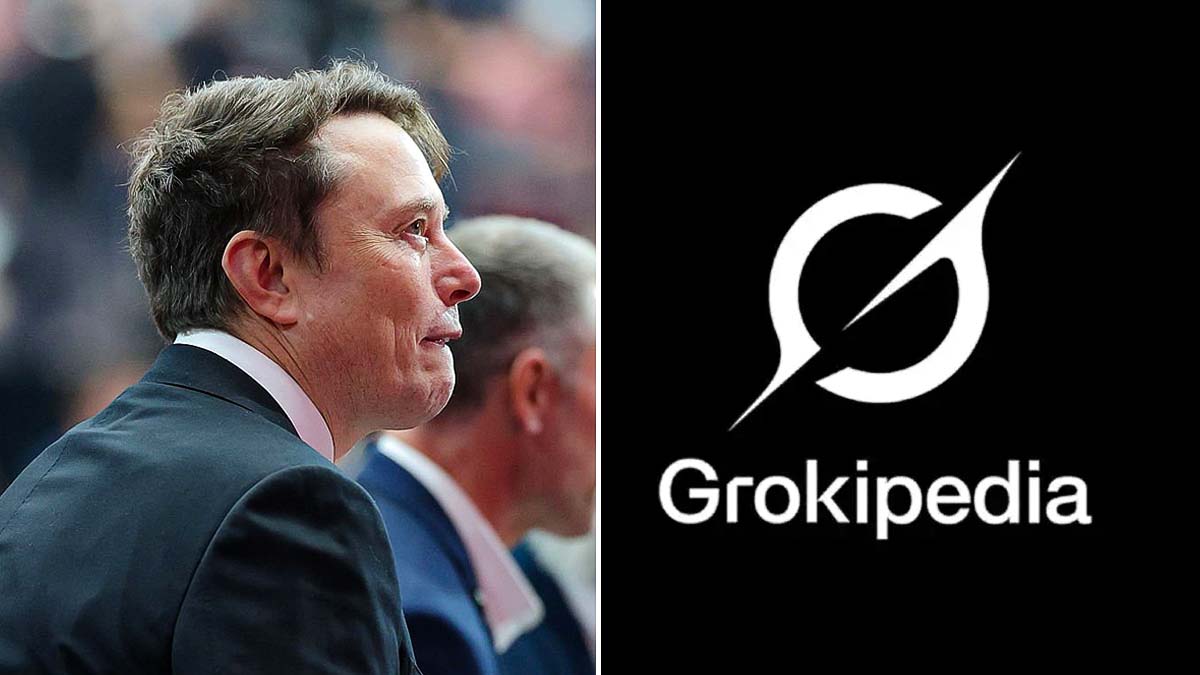Elon Musk’s xAI unveiled Grokipedia on Monday, positioning it as a revolutionary AI-driven encyclopedia designed to dismantle what Musk calls the “propaganda” riddling Wikipedia. But the ambitious launch hit a snag almost immediately: the site crashed under a deluge of traffic just hours after going live, leaving eager users staring at error screens while the platform’s counter ticked toward nearly 900,000 articles.
The debut of Grokipedia.com – version 0.1, as Musk dubbed it – came with all the flair fans expect from the Tesla and SpaceX CEO. Posting on X (formerly Twitter) late Monday, Musk declared, “Grokipedia.com version 0.1 is now live. Version 1.0 will be 10X better, but even at 0.1 it’s better than Wikipedia imo.” He followed up with a pledge for transparency: “Grokipedia.com is fully open source, so anyone can use it for anything at no cost.” The site, powered by xAI’s Grok AI model, promises to fact-check and rewrite entries using “first-principles reasoning,” aiming to strip away what Musk and his supporters view as left-leaning biases in Wikipedia’s crowd-sourced content.
Yet, the excitement proved too much for the beta servers. Users flocked to the minimalist homepage – a stark black background with a simple search bar – only to encounter loading failures and timeouts by early afternoon. Reports flooded X, with one user quipping, “Grokipedia just Grok’d itself into oblivion.” By evening, the platform stabilized, boasting 885,279 articles at launch and climbing to around 900,000 by Tuesday morning. For context, English Wikipedia holds over 7 million entries, but Grokipedia’s rapid generation via AI marks a stark contrast to human editing.
Musk’s crusade against Wikipedia isn’t new. For years, he’s lambasted the site as a “far-left” echo chamber, controlled by activist editors and reliant on ideologically skewed sources. In August 2024, he tweeted that Wikipedia “cannot be used as a definitive source for Community Notes” due to its “extremely left-biased” editorial control. This September, during an All-In podcast, investor David Sacks suggested the name “Grokipedia,” inspiring Musk to greenlight the project as a key step toward xAI’s mission: “understanding the Universe” without poisoned data. “We are building Grokipedia @xAI. Will be a massive improvement over Wikipedia,” Musk posted on September 30.
At its core, Grokipedia integrates seamlessly with Grok, allowing users to query articles directly – highlight text, hit “Ask Grok,” and get instant clarifications. Corrections are user-friendly too: spot an error? Tap “It’s Wrong,” submit a fix, and Grok evaluates it, echoing X’s Community Notes system. But early dives reveal a mixed bag. Many entries mirror Wikipedia’s structure and wording – licensed under Creative Commons – with subtle tweaks that lean into Musk’s worldview. Take George Floyd: Wikipedia’s lead paragraph focuses on his death as a catalyst for global protests; Grokipedia foregrounds his criminal history alongside the tragedy, framing it with “nuance and detail” that supporters praise as balanced. President Biden’s page highlights “severe empirical setbacks” in his tenure, a phrase absent from Wikipedia’s neutral tone. Musk’s own entry? It glows with a “Recognition and Long-Term Vision” section, downplaying controversies like his 2025 hand gesture scandal.
Critics aren’t buying the “truth serum” pitch. Jimmy Wales, Wikipedia co-founder, dismissed it in a Washington Post interview last week: “AI language models aren’t sophisticated enough… there will be a lot of errors.” The Wikimedia Foundation echoed this, noting in a statement to CNBC that “human-created knowledge is what AI companies rely on to generate content; even Grokipedia needs Wikipedia to exist.” On X, detractors accused plagiarism, with one post showing side-by-side screenshots of near-identical text. Others worried about baked-in biases: “Who decides what counts as a mistake? You built it to control what people learn,” one user challenged Musk directly. Even Larry Sanger, Wikipedia’s other co-founder, issued a wake-up call: “Wikipedia… you’d better get your house in order—or you’ll go the way of the Sears catalog.”
Supporters, however, are buzzing. Game designer Mark Kern (@Grummz) browsed controversial topics and raved, “It wipes Wikipedia on the floor… no ‘approved sources’ controlled by ideologically captured media.” Early adopters like @DillonLoomis22 hailed the George Floyd entry as “FAR superior,” free of “ideologies.” With real-time pulls from X and the web, Grokipedia touts up-to-the-minute updates – a boon for breaking news that Wikipedia’s deliberate pace can’t match.
The crash itself? xAI insiders chalk it up to “overwhelming demand,” handling 10x the queries of Grok’s initial beta. It’s a classic Musk launch: chaotic, viral, and unapologetic. As one X user noted, “Grokipedia rips off directly from Wikipedia… but then Musk’s machine removes what ‘isn’t the truth.'” Plagiarism concerns linger, though Musk admitted on X, “I know [it uses Wiki]. We should have this fixed by the end of the year.”
Looking ahead, Musk vows to phase out Wikipedia dependency by December, shifting to fully original AI content. Free access with no limits invites global input, but questions swirl: Can AI truly purge bias, or will Grokipedia just mirror its creator’s? As traffic surges – the site was back online by 7:30 p.m. ET Monday – one thing’s clear: the “knowledge wars” have a new front. Wikipedia’s dominance, built on 20+ years of volunteer grit, faces its AI Goliath. Will users defect? Or will Grokipedia’s beta bugs prove fatal?
For now, Musk’s truth quest rolls on. “The goal of Grok and Grokipedia is the truth, the whole truth and nothing but the truth,” he tweeted. “We will never be perfect, but we shall nonetheless strive towards that goal.” In an era of deepfakes and echo chambers, that’s a mission – crash or no crash – worth watching.
